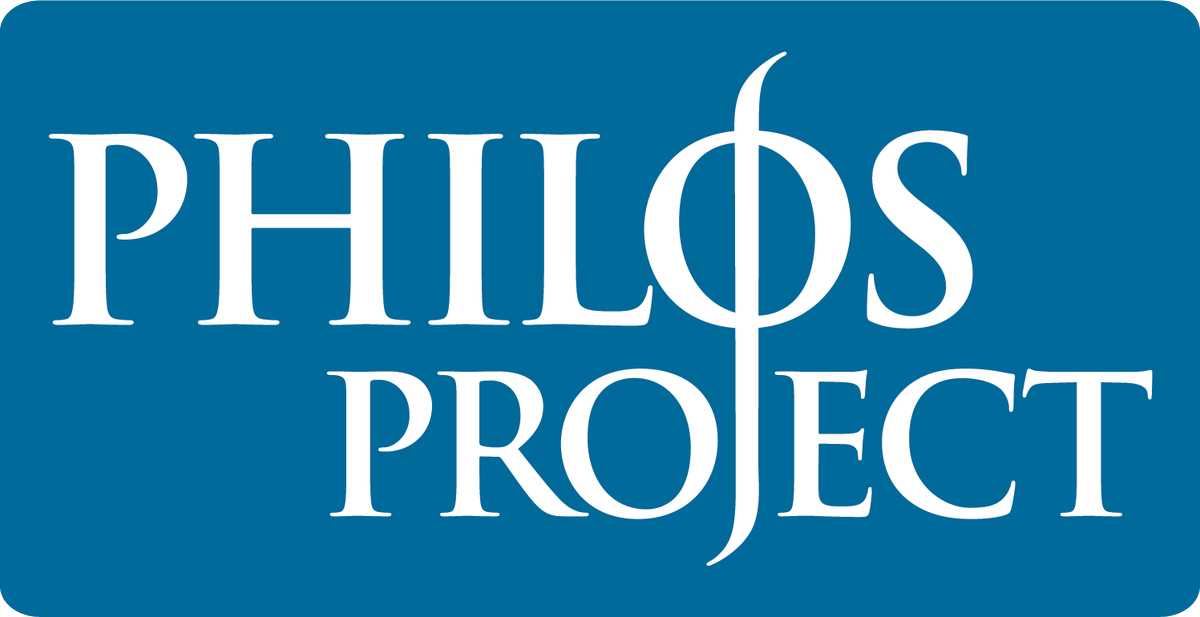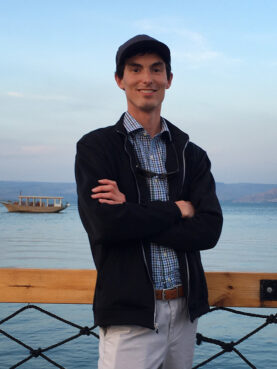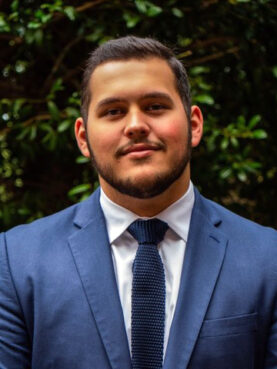(RNS) — Yeshiva University has launched a master’s degree program intended specifically for Christian students who want to learn more about Judaism, part of a growing number of academic collaborations at U.S. Christian and Jewish schools that draw students of different faiths.
The Hebraic Studies Program for Christian Students began this summer as a partnership with the Philos Project, a 9-year-old Christian nonprofit that promotes engagement with Jews. The Philos Project also pays for one-third of the $34,950 tuition cost. (Yeshiva provides students with a scholarship covering another third of the tuition. The rest —$11,650 — is paid by the students.)
The program, which enrolled eight students in its initial cohort, is run through the Bernard Revel Graduate School of Jewish Studies at Yeshiva University. It began with an online summer semester focused on introductory Hebrew. This fall, students will begin taking classes in ancient and modern Jewish history, post-biblical Jewish literature and Jewish-Christian relations.
“This is very much in keeping with our graduate school’s mission, which is to use the best methodologies to enhance the understanding of Jewish religion, Jewish culture,” said Jonathan Dauber, associate professor of Jewish mysticism at Yeshiva and the director of the new program.
Although Yeshiva has a rabbinical school that ordains rabbis in the Orthodox tradition — the Rabbi Isaac Elchanan Theological Seminary — the master of arts degree program is a separate graduate school offering.

Philos Project logo. Courtesy image
The program comes at a time when many seminaries and graduate schools are courting students of different faiths. Nearly all U.S. Jewish schools — including Yeshiva — have long welcomed non-Jewish students to their master’s programs. These M.A. and Ph.D. degrees typically draw non-Jewish students who intend to convert to Judaism or have an academic interest in teaching biblical Hebrew at a university level.
Christian seminaries have also sought a greater mix of students. Schools such as Harvard Divinity School, Union Theological Seminary and Chicago Theological Seminary have expanded beyond their traditional pool of Christian students studying to be pastors to include Muslims, Buddhists and Jews who are seeking advanced knowledge but not ordination in a Christian church.
Christian schools are also drawing more heavily on Jewish institutions to educate them on Judaism. A Lilly Endowment grant to the Association of Theological Schools, for example, has allowed the Academy for Jewish Religion, an independent rabbinical school in Yonkers, New York, to produce a series of short videos about Judaism for ATS member schools. The Academy for Jewish Religion is the only accredited Jewish seminary that is part of ATS.
That kind of cross-pollination between Jewish and Christian traditions is part of a greater warming of relations that has come in the wake of the Holocaust.
RELATED: Yeshiva University spans Muslim/Jewish divide in new UAE-based conference
The Yeshiva University program consists of four semesters of study. The summer semester, which concludes this week, was entirely online, but the fall and spring semesters will be a hybrid of online and in-person classes.

Joshua Andrew Johnson. Courtesy photo
Joshua Andrew Johnson, a 30-year-old student from Washington state, is one of the initial cohort enrolled in the Yeshiva program. A Christian who attends a Presbyterian church, he wasn’t sure whether to pursue an academic career or the pastorate, but he wanted a deeper grounding in the Jewish roots of Christianity.
“It’s something I’ve been passionate about — Jewish-Christian relations — understanding how the two faiths became separate and how Christianity emerged from Judaism as a separate religion,” Johnson said.
Like most of the students in the program, Johnson was drawn to Yeshiva because of his involvement with the Philos Project, the nonprofit that takes its name from the Greek word for friend. Philos works to further what it calls “positive Christian engagement” with Judaism and specifically with Israel, although it runs programs across the Middle East and with Indigenous Christians, too.
Robert Nicholson, president and founder of the Philos Project, said a lot of Christians have very little knowledge of Judaism.
“They are totally unaware of the Jewish side of the story. They see Jews were in the New Testament and then there’s like 1948, and no clue what happened in between,” Nicholson said, referring to the year Israel was founded. “We’re trying to fill in some gaps and just create relationships.”
Evangelicals have been one of Israel’s strongest and most influential supporters, and the Philos Project is no exception, but Nicholson said his staff and programs include Catholics and Orthodox Christians. Not all the students in the program are evangelical.

Christian Charrier. Courtesy photo
Students apply to the program through Philos. Once admitted they take classes alongside Jewish students, except for a few classes tailored especially for non-Jews with little background in biblical Hebrew.
“One of our goals for this program is to foster dialogue because there will be Christian students and Jewish students together in the same classrooms talking to each other,” Dauber said.
Christian Charrier, who recently completed an undergraduate degree at Regent University, said he was drawn to the Yeshiva program after becoming enamored with the Old Testament or Hebrew Bible as part of a biblical studies major.
“This is a way to better understand the Jewish faith, and learn it from their narrative and their story, instead of having a solely evangelical perspective on how Jewish thought works,” said Charrier, who is 23. “So I think it’s a really unique opportunity.”
RELATED: How Yeshiva University tries to balance ‘yeshiva’ and ‘university’





